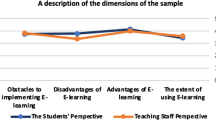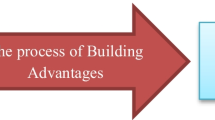Abstract
The paper seeks to accomplish four objectives. The first is to examine the need for e-learning in Africa's institutions of higher learning. The second is to discuss the policy, institutional, pedagogical, copyright, and quality assurance issues that need to be addressed. The third is to critically examine the advantages and disadvantages of e-learning in African universities. The fourth is to provide a practical partnership model for design and successful delivery of e-learning programmes. To achieve these objectives, a critical analysis of relevant literature and case studies was conducted. The literature search included computerized search of accessible and available material on e-learning in Africa and world over, manual search of existing literature, and communication with key subject matter experts to locate published and unpublished studies. The results of the study show that e-learning has a future in Africa's universities and that there is need to build e-learning programmes based on genuine partnerships from other successful partners within and without Africa.

Similar content being viewed by others
References
Amutabi, M.N. and Oketch, M.O. (2003) ‘Experimenting in distance education: the African Virtual University (AVU) and the paradox of the World Bank in Kenya’, International Journal of Educational Development 23 (1): 57–73.
Beard, L. and Harper, C. (2002) ‘Student perceptions of online versus on campus instruction’, Education 122 (4): 658–664.
Belanger, F. and Jordan, D.H. (2004) Evaluation and Implementation of Distance Learning: Technologies, Tools and Techniques, Hershey, PA: Idea Group Publishing.
Berge, Z., Collins, M. and Dougherty, K. (2000) ‘Design Guidelines for Web-based Courses’, in B. Abbey (ed.) Instructional and Cognitive Impacts of Web-based Instruction, Hershey: IDEA Group, pp. 32–40.
Brabazon, T. (2002) Digital Hemlock: Internet Education and the Poisoning of Teaching, Sydney: University of New South Wales.
Chamberlin, W.S. (2001) ‘Face to face vs cyber-space: finding the middle ground’, Syllabus 15: 11.
Chun, H. and Hinton, B. (2001) ‘Factors Affecting Student Completion in Distance Learning Mediated HRD Baccalaureate Program’, in O.A. Aliaga (ed.) Proceedings of the Academy of Human Resource Development, Baton Rouge, LA: AHRD, pp. 85–992.
Department of Education. (1998) Office of Educational Technology. Retrieved 12 October 2005.
Desforges, C. (2000) Familiar challenges and new approaches: necessary advances in theory and methods in research on teaching and learning Paper presented at the BERA, Cardiff, 2000.
Donlevy, J. (2003) ‘Teachers, technology and training’, International Journal of Instructional Media 30 (2): 117–121.
Epstein, M. (2002, December) Constructivism. Retrieved 7 October 2005.
Gilbert, S.W. (1997) ‘Re-focus on learning and teaching: educational uses of information technology for everyone’, The Technology source. Retrieved on 14 October 2005.
Gillani, B.B. and Relan, A. (1997) ‘Incorporating Interactivity and Multimedia into Web-based Instruction’, in B.H. Khan (ed.) Web-Based Instruction, Englewood Cliffs, NJ: Educational Technology Publications, pp. 231–237.
Hager, P. (2004) ‘Lifelong learning in the workplace: challenges and issues’, Journal of Workplace Learning 16 (1/2): 22–32.
Hamalainen, M., Whinston, A.B. and Vishik, S. (1996) ‘Electronic markets for learning: education brokerage on the Internet’, Communications of the ACN 39 (6): 51–58.
Heinich, R., Molenda, M., Russell, J.D. and Smaldino, S.E. (2002) Instructional Media and Technologies for Learning (7th edn), Upper Saddle River, NJ and Columbus, OH: Merrill Prentice Hall.
Hinton, B.E. (1998) ‘Developing a Baccalaureate degree for working adults’, Paper presented during the Academy of Human Resource Development Annual Research Conference; 28 February–4 March; Chicago, IL.
Huitt, W. (2003) ‘Constructivism: educational psychology interactive’, Retrieved 7 October 2005.
Hung, D. (2001) ‘Design principles for web-based learning: implications for Vygotskian thought’, Educational Technology 41 (3): 33–41.
Internet Lab. (2005) World universities ranking on the web, Retrieved on 14 October 2005.
Juma, M.N. (2004) ‘African Virtual University (AVU): Challenges and Prospects’, in M.A. Beebe, K.M. Kouakou, B.O. Oyeyinka and M. Rao (eds.) Africa Dot Edu, New Delhi: Tata McGraw-Hill Publishing Company Limited, pp. 206–225.
Kiamba, C. (2003) ‘The experience of the privately sponsored studentship and other income generating activities at the University of Nairobi’, Paper presented during the Regional Training Conference on Improving Tertiary Education in sub-Saharan Africa: Things that work! Accra; Ghana; September 2003; pp. 23–25.
Kitainge, K.M. (2005) ‘Balancing the forces: the development of relevant training that aligns to the work demands in automotive retail, service and repair industries in Kenya and Australia’, Unpublished doctoral dissertation, Royal Melbourne Institute of Technology, RMIT University.
Makerere University. (2000) ‘Information and communication technology policy’, Retrieved on 14 October 2005.
Miller, P., Walker, J.M. and Aayla, J. (2003) ‘Technology integration as a transformative catalyst and tool’, International Journal of Learning 10: 2461–2480.
Mishra, S. (2002) ‘A design framework for online learning environments’, British Journal of Educational Technology 33 (4): 493–496.
Mungania, P. and Nafukho, F.M. (2005) ‘E-learning in higher education institutions in developing countries: human resource policy implications’, In refereed conference proceedings of European Chapter of the Academy of Human Resource Development, Leeds University, AHRD.
Nafukho, F.M. (1998) ‘The role of universities in Africa in the knowledge explosion Era’, Proceedings of the 15th Annual Meeting Association of Third World Studies Inc; October, Hartford, Connecticut USA: Central Connecticut State University, pp. 80–86.
Nafukho, F.M. (2004) ‘The Market Model of Financing State Universities in Kenya: Some Innovative Lessons’, in P.T. Zeleza and A. Olukoshi (eds.) African Universities in the Twenty First Century, Pretoria: University of South Africa Press, pp. 126–139.
Nafukho, F.M. (2005) ‘Access efficiency, and equity considerations of the World Bank's African Virtual University Project: A Case Study of Kenya’, In refereed Proceedings of the 11th Association of African Universities General Conference Accra: Association of African Universities, pp. 335–359.
Nafukho, F.M., Amutabi, N.M. and Otunga, R.N. (2005) Foundations of Adult Education in Africa, Cape Town: UNESCO/Pearson.
Nafukho, F.M. and Burnett, F.M. (2002) ‘College Choice: The State of Marketing and Effective Student Recruitment Strategies’, in T.M. Egan and S.A. Lynham (eds.) Referred Conference. Proceedings of the Academy of Human Resource Development Bowling Green, OH: Academy of Human Resource Development, pp. 788–795.
Nafukho, F.M., Hairston, N. and Brooks, K. (2004a) ‘Human capital theory: implications for human resource development’, Human Resource Development International 7 (4): 545–551.
Nafukho, F.M. and Park, O.D. (2004) ‘Essential Tips for Planning and Development of Online Courses’, in D. Christopher and S. Jaderstrom (eds.) E-World: Virtual Learning, Collaborative Environments, and Future Technologies, Reston, VA: National Business Education Association, pp. 209–222.
Nafukho, F.M., Thompson, D.E. and Brooks, K. (2004b) ‘Factors predicting success in a distance learning nontraditional undergraduate degree program’, International Journal of Vocational Education and Training 12 (2): 82–95.
Nafukho, F.M. and Verma, S. (2001) ‘A Comparison of the efficiency and equity implications of university loan programmes in the United States of America and in Kenya’, Journal of Third World Studies XVIII (2): 187–207.
Nafukho, F.M. and Wawire, N.H.W. (2004) ‘Developing Entrepreneurial Universities in Africa’, in C. Momanyi and N.H.W. Wawire (eds.) Disparities in Science, Technology, Environment, HIV/AIDS and Education, Nairobi: Association of Third World Studies-Kenya Chapter, pp. 196–203.
Nyaigoti-Chacha, C. (2002) ‘Public Universities, Private Funding: The Challenge in East Africa’, paper presented at the Illinois University International Symposium on African Universities in the twenty first century; April Urbana-Champaign, IL, pp. 25–27.
O’Lawrence, H. (2005) ‘A review of distance learning influences on adult learners: advantages and disadvantages’, In refereed Proceedings of the 2005 Information Science and IT Education Joint Conference. Available online.
Owston, R. (1997) ‘The world wide web: a technology to enhance teaching and learning?’ Educational Researcher 26(2): 27–33.
Pai, D.C. (2005) ‘Knowledge strategies in Taiwan's IC design firms’, Journal of American Academy of Business 7 (2): 73–77.
Piotrowski, C. and Vodanovich, S.J. (2000) ‘Are the reported barriers to Internet-based instruction warranted? A synthesis to of recent research’, Education 121: 48–53.
Rwamasirabo, E. and Beebe, M. (2005) ‘Quality assurance in transnational education: implications for higher education in Africa’, In refereed Proceedings of the 11th Association of African Universities General Conference Accra: Association of African Universities, pp. 305–323.
Senge, P. (1990) The Fifth Discipline of a Learning Organization, New York: Currency Doubleday.
Star. (1997) ‘Star schools programme’, Retrieved 12 October.
Sutton, M.J. (2003) ‘Problem presentation, understanding, and learning transfer implications for technology education’, Journal of Industrial Teacher Education 40 (4). Retrieved 7 October 2005.
The Partnership for Higher Education in Africa. (2005) ‘The bandwidth initiative: opening the power of the internet to African universities’, Retrieved 13 October 2005.
TLCF. (1997) ‘Technology literacy challenge funds’, Viewed 6 October 2004.
Tull, B.A.M. (2001) ‘About online learning’, Retrieved 7 October 2005.
Villalba, C. and Romiszowski, A.J. (2001) ‘Current and Ideal Practice in Designing, Developing and Delivering Web-based Training’, in H.B. Khan (ed.) Web-based Training, Englewood Cliff, NJ: ETP, pp. 325–342.
Wahlstrom, C., Williams, B.K. and Shea, P. (2003) The Successful Distance Learning Student, Belmont, CA: Scratchgravel Publishing Services, Wadsworth/Thomson Learning.
Waihenya, K. (1998) ‘Distance education only way out for poor countries’, Daily Nation, November 9, 19.
Wallace, I.G. (1996) ‘Technology as an Instructional Strategy’, in H.R. Perreault (ed.) Classroom Strategies: The Methodology of Business Education, Reston, VA: National Business Education Association.
World Bank. (2002) Constructing Knowledge Societies: New Challenges for Tertiary Education, Washington DC: World Bank.
Author information
Authors and Affiliations
Rights and permissions
About this article
Cite this article
Nafukho, F. The Place of E-Learning in Africa's Institutions of Higher Learning. High Educ Policy 20, 19–43 (2007). https://doi.org/10.1057/palgrave.hep.8300141
Published:
Issue Date:
DOI: https://doi.org/10.1057/palgrave.hep.8300141




